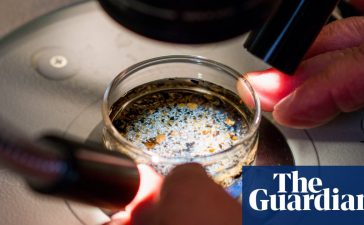Pharmacists should not be considered a substitute for GPs, campaigners said today as Rishi Sunak faced backlash over his ‘revolution’.
Under blockbuster NHS plans designed to free up millions of doctors’ appointments, chemists have been given new powers to hand out prescriptions for seven common ailments.
It means patients battling minor illnesses, such as a sore throat or earache, can now bypass their GP.
But critics have slammed the ‘risky’ scheme, with pharmacists battling their own crisis that has left the sector on the ‘brink of collapse’. Patients have complained of ‘terrible’ queues and ‘nightmare’ experiences.
Former health secretary Thérèse Coffey has also admitted her own worries surrounding overprescribing prescriptions.

Under NHS plans to free up millions of appointments with family doctors, chemists will be able to dish out contraceptive pills to women. High street pharmacists will also get powers to hand out prescriptions for common ailments, meaning patients battling minor illnesses can bypass their GP. Under wider plans, pharmacists will be offering more blood pressure checks to at-risk patients, with a commitment to deliver 2.5 million a year by spring 2025
Meanwhile, The Royal College of GPs has itself said that thousands of patients will inevitably need ‘the expertise’ of a doctor, rather than just rely on a pharmacist.
Dennis Reed, of Silver Voices, which campaigns for elderly Brits, told MailOnline: ‘We have every respect for the skills of pharmacists.
‘But they are not qualified doctors.
‘What might present as symptoms for a common condition could have much more serious underlying causes, and the patient may go away from the chemist feeling reassured, only to need critical care at a later stage.’
He said the scheme, part of a wider push to ease pressure on overwhelmed GPs is a ‘false economy, intended to conceal the primary care crisis’.
Mr Reed added: ‘What we need is timely face to face appointments with a family doctor, not a diluted and risky alternative.’
Speaking in the Commons today, Ms Coffey also praised the scheme, but admitted she had concerns surrounding overprescribing.
The Tory MP for Suffolk Coastal said: ‘This is the sort of sensible approach, which frankly did meet some resistance from my side of the department, worries about overprescribing prescriptions.
‘But it’s treating pharmacist like proper professionals, most importantly of all, quicker access to care, necessary care that patients will now properly enjoy.’
Under the newly-launched Pharmacy First service, patients can turn to thousands of chemists for illnesses like sinusitis, impetigo, infected insect bites and shingles.
Pharmacists will also be able to assess and treat women under the age of 65 who are battling uncomplicated UTIs.
Pharmacists are fully qualified professionals who undertake a five-year degree.
They do not, however, have full access to patients’ NHS records and are instead only able to view summaries, which contain basic information such as allergies. But plans are in place to change that.
Writing in The Telegraph today Mr Sunak said: ‘Local pharmacies are at the heart of our communities – and they are close to my heart too, as my mum set up and ran our local pharmacy in Southampton when I was growing up.
‘So we are launching Pharmacy First across England — starting a mini revolution in high street healthcare.
‘This new service will make it quicker, easier and more convenient for millions of people to access NHS care for common conditions.
‘It will save people time and hassle to get the straightforward medication they need quickly.’
Mr Sunak said ‘simple’ reforms amount to the biggest shake-up in pharmacy for years and will trigger benefits across the NHS.
Eight in 10 people live within a 20-minute walk of a pharmacy and many have private consultation rooms, which can help put patients at ease, he noted.
Since December, pharmacists have also been able to dish out contraceptive pills to women.
A wider range of trained pharmacy staff can also provide the Blood Pressure Check service.
Both form part of the string of measures designed to ease pressures on GPs.
Despite criticism over the scheme, experts also hailed it as a ‘step forward’ in helping prevent GPs working ‘below their pay grade’.
Rachel Power, Chief Executive of the Patients Association, told MailOnline: ‘Community pharmacies are already a source of great information for many patients.
‘Giving pharmacists, who are highly trained healthcare professionals, the right to provide more medicines and initiate treatments expands choice and access for patients in England.
‘Pharmacists are integral to primary care and they are keen to provide these additional services.’

Writing in The Telegraph today Mr Sunak said: ‘Local pharmacies are at the heart of our communities – and they are close to my heart too, as my mum set up and ran our local pharmacy in Southampton when I was growing up. So we are launching Pharmacy First across England — starting a mini revolution in high street healthcare’

Under blockbuster NHS plans designed to free up millions of doctors’ appointments, chemists have been given new powers to hand out prescriptions for seven common ailments. It means patients battling minor illnesses, such as a sore throat or earache, can now bypass their GP from today
Meanwhile Christopher Snowdon, head of lifestyle economics at the Institute for Economic Affairs, said: ‘GPs spend far too much time doing work that is below their pay grade and treating people who have relatively trivial illnesses.
‘Most patients do not want to hassle of hanging on the telephone at eight in the morning to get a GP appointment and most GPs don’t want to waste time prescribing paracetamol.’
He told MailOnline: ‘On the face of it, Pharmacy First therefore seems a step forward.’
NHS data has long shown that GPs, who earn £118,000-a-year, on average, are under huge pressure and treating a record number of people.
Family doctors have reported cramming in up to 90 appointments per day in some areas, warning that rushing patients through in conveyor belt-like scenes risks missing serious illnesses.
The British Medical Association recommends GPs should not deliver more than 25 appointments a day to ensure safe care.
But family doctors have already warned patients will still require the ‘expertise of a GP’.
Following the scheme’s announcement last year, chair of The Royal College of GPs, Professor Kamila Hawthorne, said while it was ‘keen to see initiatives that will ease pressure on our struggling service’, many patients will ‘need the expert diagnostic skills and expertise of a GP’.
GPs have also warned that checking record updates coming from pharmacies will add to their workload instead of saving them time.
Community pharmacy IT systems will automatically send details of patient consultations to GP IT systems, meaning family doctors must ‘check and update the patient’s record’.
Meanwhile, the Doctors’ Association UK has urged ministers to urgently review why pharmacies are paid ‘more than double’ per consultation compared with GPs.
Pharmacy contractors delivering the service will get £1,000 per month, subject to delivering a minimum number of consultations.
According to DAUK calculations, this will equate to roughly £48 per consultation — more than double the £23 per consultation that GPs currently receive.
NHS statistics show there were just under 27,500 fully-qualified GPs working across England in December.
This is just under 2,000 fewer than the figure recorded in the same month in 2016.
This is despite the population growing by around 2million over the same period.
Many GPs are retiring in their 50s, moving abroad or going private because of rising demand, NHS paperwork and aggressive media coverage.
This has led to an appointment crisis in general practice, with patients being forced to endure the 8am scramble – with only four in 10 patients securing same day appointments and three in 10 forced to wait more than a week to see their family doctor.
Others are forced to complete an online e-consult to reach their practice.
Pharmacies are battling their own crisis. Just 11,414 community pharmacies offering crucial NHS services remain, the fewest since records began. Almost 400 shut their doors in 2022/23 alone.
Real-time NHS England data shows the count as of December 31, 2023 may be as little as 10,273.

Pharmacies are battling their own crisis. Just 11,414 community pharmacies offering crucial NHS services remain, the fewest since records began. Almost 400 shut their doors in 2022/23 alone. Pictured, a social media user complaining about a ‘ridiculous’ queue in Boots in Redhill last year

Members of the Pharmacists’ Defence Association, which represents thousands of pharmacists in the UK, also revealed they are worried that ‘the hurried launch’ of the Pharmacy First scheme will result in a spike in violence and abuse from the public, whose expectations will have been raised. Pictured, a social media user shared a picture of a queue at Boots in November
Boots have closed branches en masse in recent months, while LloydsPharmacy has shut its doors completely.
Pharmacy bodies argue the sector is struggling due to NHS underfunding, spiralling drug prices and costs, staff shortages and an ailing GP service.
Members of the Pharmacists’ Defence Association, which represents thousands of pharmacists in the UK, also revealed they are worried that ‘the hurried launch’ of the Pharmacy First scheme will result in a spike in violence and abuse from the public, whose expectations will have been raised.
Nine in ten chemists across the country have signed up to the scheme, backed by £645millon in funding over the next two years.
It will be offered by both high street and online pharmacies, who will undertake the service via a video appointment and deliver the prescription in the post.
Dr Leyla Hannbeck, chief executive of the Association of Independent Multiple Pharmacies, welcomed the move but warned funding pressures were a ‘stranglehold’ on the sector.
She said: ‘This nonsense cannot go on and this stranglehold of chronic underfunding must be relieved now to ensure our community pharmacies continue to exist and can deliver to the potential the Government is expecting.’
Health leaders also warned the initiative could fail unless GP surgeries are banned from recruiting more pharmacists.
The Company Chemists’ Association (CCA), which represents chains including Boots and Superdrug, says so many pharmacists are now working for GPs they are struggling to recruit.
The NHS has incentivised GPs to recruit non-medical staff, such as pharmacists, physiotherapists and paramedics, in a bid to plug staffing gaps and ease pressure on family doctors.
The shortage in pharmacists working in the community has driven up locum pharmacy rates, increasing the cost of trading, and leading to temporary closures, the CCA said.
This is because pharmacies are not allowed to open unless there is at least one pharmacist on site.











